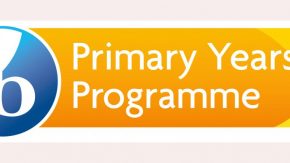Grammar in Year 2
What is an adjective? Do you have to think for a moment before explaining what a noun or verb is? What does an adverb do? How about, conjunctions, time connectives, superlatives, noun groups and adverbial phrases? Syntax? Even the word grammar alone can bring back bad memories for us as adults. From my days at school I can recall endless grammar worksheets and a feeling that grammar was a difficult skill to master, however, we have proof from our Stage 1 writers that grammar is nothing to be afraid of. We explicitly teach the boys parts of speech and sentence construction, they know what a noun and verb are, and how to modify their meaning through the use of adjectives, adverbs, and verb groups. Teaching in this way equips the boys with the tools and materials to write, and the language to understand and explore the skill of writing.
In these writing samples, the boys were given a simple sentence, lacking description and meaning. Their task was to enhance the sentence and therefore increase its meaning. To successfully complete the task the boys have identified the nouns and verbs in a simple sentence and know where they can use adjectives, adverbs, verb groups and similes to make them more complex.
Before: Hulk was reading a book.
After: The Incredible Hulk was rapidly reading a princess fairy tale under a gumtree with brown leaves.
Before: He heard a loud bang.
After: Suddenly, an ear exploding sound hit the air like ten brass bands had suddenly started to play their highest note. – Harvey
Before: Hulk got angry.
After: The green Hulk lost his calm, and ripped his shirt.
Before: He fought the skrulls.
After: He sprung into action ready to fight the alien skrulls.
Before: Spiderman swings through the city
After: The ultimate web slinger launches off city buildings, rides on walls and fights like a spider.
What is Grammar?
Grammar is a set of rules that guides the way we choose and order words to create phrases, clauses and sentences. It also guides the way we manipulate the structure words (creating a plural or changing tense) to create meaning.
Why is grammar important?
The use of correct grammar is important because it is the main feature within both our spoken and written communication that allows us to have our messages clearly understood. Using correct grammar makes listening and reading easier for others to understand and can make the communication process more enjoyable. As a child learns to write, grammar becomes an important process as they learn how to communicate their thoughts and ideas in written form. With a good understanding of the different grammatical components of language, a child is able to express themselves clearly and establish good foundation skills for writing. Grammar also helps children explore interesting ways of expressing and communicating their ideas and imagination accurately to their audience.
NOUN – a word that identifies people (Steve, son, Grandma), places (school, home, Sydney), or things (chair, bag, ball).
ADJECTIVE – a word that describes a noun, such as sweet, red, or powerful
VERB – a word used to describe an action such as run, happen, swing
ADVERB – a word that describes a verb such as slowly, quickly, happily
CONJUNCTION – a word used to connect clauses or sentences (e.g. and, but, if)
SUPERLATIVE – an adjective or adverb that expresses the highest or a very high degree of a quality (e.g. bravest, quickest, most fiercely).
Carol Peterson – Year 2 Teacher






